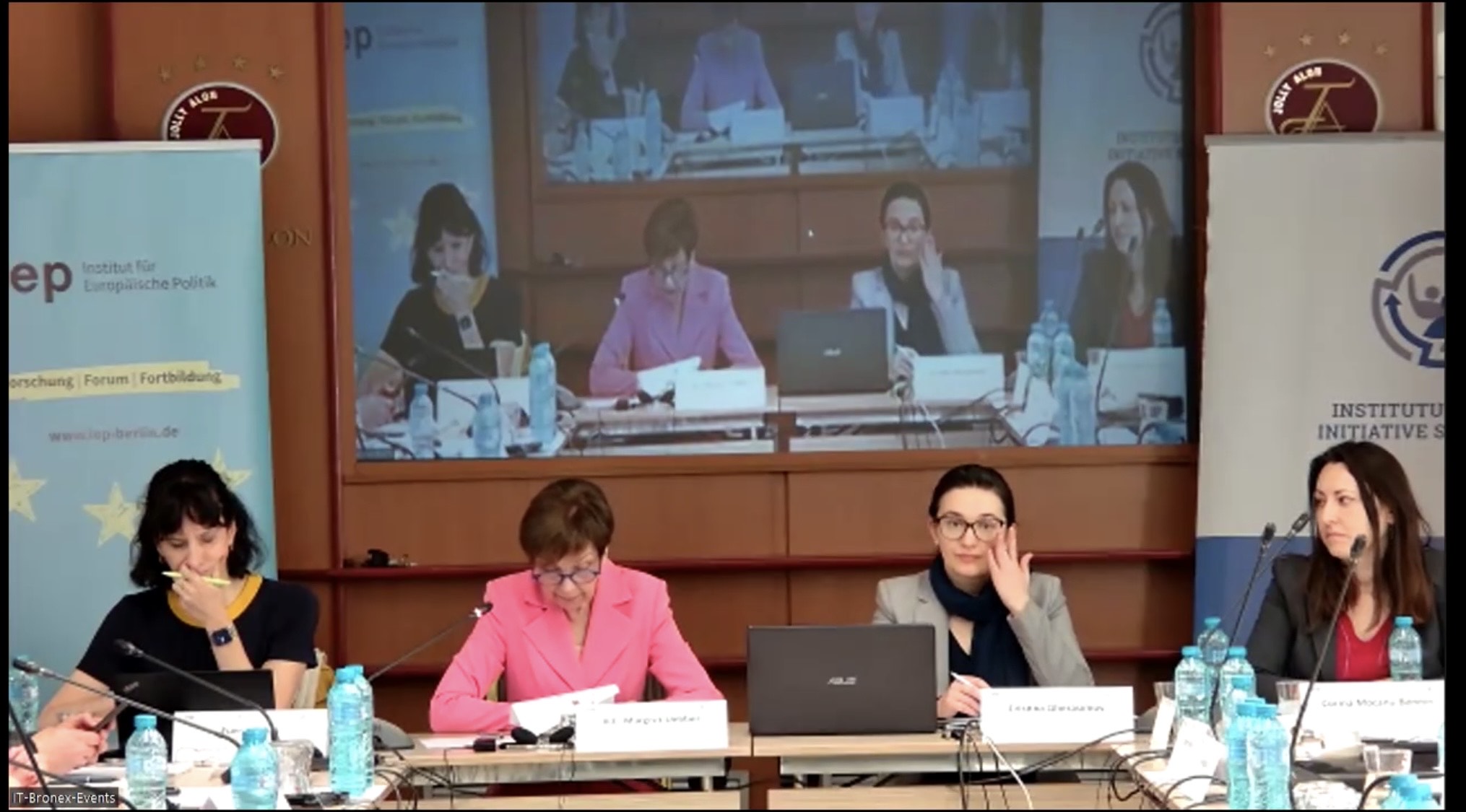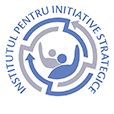#NEXT4EU Policy dialogue: Moldova’s EU accession negotiation process – between efficiency and democratic accountability

The fifth NEXT4EU policy dialogue on April 12, 2024, was dedicated to two crucial issues for the future EU integration of Moldova. Firstly, the collaboration between civil society organisations and the government. Secondly, the plans to hold a constitutional referendum on EU integration on the same day as the presidential elections in October of this year.
Below we have given the main ideas from the debate.
During the opening session it was stated that:
- A safe and enabling environment for civil society organisations is fundamental as well as effecting the inclusive participation in policy making. Their fundamental rights need to be granted, in particular freedom of association, assembly and expression. Access to information, media literacy as well as resilience to what is manipulated information are essential to civil society to take informed decision.
- Adequate mechanisms should be available to ensure participation in rural and remote areas.
- Access to financial resources needed to be granted. The EU through various programs contributes to that goal.
- Having civil society participate in debates around EU accession will contribute to enhancing trust in this process to deepening citizens understand the reforms needed and at the same time enhance trust in democracy.
- It’s civil society who has this capacity to give citizens a voice and to represent them in these reforms. The contribution of the civil society will be key on all stages of the EU accession and this is why the dialogue will continue in formal or informal settings. Civil society has evolved a lot in the last three decades. The role of each of them is very crucial in this process and even more on the local level they can guard the process of EU integration especially in the context of a heavy disinformation.
- EU membership is a moving target. With the support of civil society the Moldovan authorities might be able to speed up the negotiation process but needs the population across the country on board. The experience of the Western Balkans shows that it could take longer until the membership is achieved.
The first panel, on the EU accession negotiations and the role of civil society in this process focused in-depth on the role and involvement of civil society in Moldova’s EU accession negotiations. On the one hand, active participation from civil society is crucial, especially given that it has accumulated substantial experience in multiple areas which will be discussed during EU accession negotiations and could make the process much more efficient. At the same time, civil society needs to continue exercising its role of a watchdog, and this brings up an important issues of democratic accountability of the EU approximation process.
- The Moldovan government managed to develop a very good partnership with the civil society. It would be key to ensure that this became permanent. A specific mechanism needs to be built at various levels to make sure that regardless of who is in power the same good partnership will persist in the future.
- Civil society is largely in favour of the EU integration process, but this loyalty also brings certain risks.Civil society, runs the risk of being more lenient and having less rigor towards the state institutions involved in this process, and obviously these risks must be minimized. The state should not get upset when non-governmental organisations come up with certain criticisms. Often this criticism is not perceived correctly. This is why it is good to have a continuous dialogue.
- The majority of the civil society is very much common of the same idea – Moldova should be part of the European Union, Moldova should transform itself, should invest in reforms.
- Public communication is even more important when talking about the accession process because negotiations are very difficult and complex to explain as a process. Transparency is a great tool that Moldova has.
- In Serbia, civil society did not enter directly the government working groups for the Accession Negotiations. The perspective of the civil society was that it is better to stay outside of the process in order to provide a neutral and objective monitoring of the process. With a clear regulation of this dual role of watchdog and contributor to the process, it is possible to find a compromise.
The second panel was dedicated to the referendum on Moldova’s accession to the European Union, which will take place simultaneously with presidential election in October of 2024. If the referendum succeeds and the majority of people voting will say Yes, EU integration as a strategic goal will be incorporated into Moldova’s constitution.
However, getting there is a big challenge, as there have been many pros and cons debated in Moldova’s society. The position and implication of civil society in pushing for a yes vote but at the same time not being accusing of partisanship is of fundamental importance.
- It is extremely important to understand that the battle on the outcome of the referendum will not end on the day of the referendum. After the referendum the battle of interpretation of the results will begin.
- The opponents are trying to turn the referendum from pro/against the EU into a referendum pro/against Maia Sandu, pro/against PAS.
- The moment to communicate and promote European integration is now, and anyone who supports it should join this process.
- It’s a unique chance that should be seized but there are fears that Moldov is not well prepared for this referendum.
- There is still a lack of knowledge about the referendum: what is means, its potential consequences, what will happen next, what exactly will be changed in the Constitution, why, and what about the neutrality status. There is a broad spectrum of questions. While it may be clear for civil society from the capital, unfortunately, local communities still know neraly nothing about it. Hence, there is a need of closer communication and an intensive information campaign.
The Policy Dialogue was attended by the German Ambassador to Moldova, Margaret Uebber, the Deputy Prime Minister for EU accession, Cristina Gherasimov, the Chief of Staff of the Presidential Administration, Adrian Balutel, State Secretary at the Ministry of Internal Affairs, Jana Costachi, Corina Mocanu Bonnin from the EU Delegation to Moldova, representatives of civil society, of development agencies and of advisory missions.
This Policy Dialogue took place in Chisinau within the project “#NEXT4EU – Young Generation for EU Integration in Moldova”. It is implemented by the Institut für Europäische Politik (IEP), in partnership with the Institute for Strategic Initiatives (IPIS) and the Institute for European Policies and Reforms (IPRE), supported by the the German Federal Foreign Office.



 Română
Română Русский
Русский